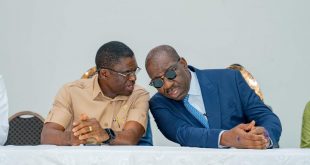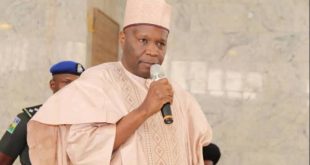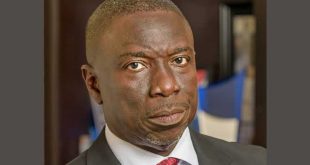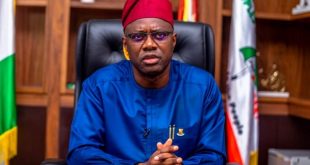
Adelabu said this during a late-night interview on Channels TV on Monday.
“If anybody tells you that you’ll have 24/7 uninterrupted light in the next six months or one year, it’s a lie because it’s not practical, even if you throw all the money in the world at it,” he said.
While expressing confidence in his understanding of the sector’s intricacies, he said he would continue to facilitate gradual and consistent enhancements in electricity provision.
Addressing scepticism surrounding his appointment, Adelabu, drawing on his background as a seasoned banker, said the fundamental hurdles plaguing the power sector extend beyond mere technical complexities.
In charting a path forward, Adelabu highlighted the imperative for substantial investment to foster sustainable development and generate lasting impacts within the power sector.
He said: “We need consistent funding for us to get to where we’re going. If there’s no such funding, there’ll be very little we’ll achieve when it comes to transmission.
“To build a power substation now costs millions of dollars. To install a 100km of 330 or 132 KV line costs hundreds of millions of dollars. So, it’s not little money that’s required to have stable electricity; it’s a lot of investment over time.”
On Tuesday, Adelabu stressed the need for consistent reforms in the power sector.
He spoke at the opening ceremony of a three-day seminar for judges, organised by the Nigerian Electricity Regulatory Commission in Abuja.
According to the minister, the legal profession has been able to achieve successes through reforms that were geared towards sustainability.
“If the Nigerian power sector had received the same consistent reforms supported by required resources, we would have more desirable results in the Nigerian electricity supply industry,” he said.
Adelabu added that the country has started the journey towards critical reforms in the power sector.
He said: “Prior administrations have contributed immensely in this regard but the legislative changes that have occurred in the past year have placed the sector on the path of a total paradigm shift.
“The notable legislative changes have been the amendment of the constitution of the Federal Republic of Nigeria with the granting of unfettered powers to subnationals to develop electricity markets within their jurisdictions and the Electricity Act 2023 that was assented to by Mr President in the first month of his administration.”
According to him, the Electricity Act 2023 introduces far-reaching features that propel market liberalisation, extend regulatory reach, and establish a more coherent policy framework that will mitigate the operational and systemic risks in the industry.
“As we navigate our path towards a more commercially viable electricity market that is characterised by legal and contractual obligations, the imperative to understand the peculiar and nuanced nature of a regulated electricity market becomes even more imperative,” he said.
Sanusi Garba, chairman of NERC, said the seminar was aimed to stimulate a discourse on emerging legal issues relating to the Nigerian electricity supply industry and to appraise the judiciary of the recent changes in the regulatory landscape.
 DailyrecordNg …Nigeria's hottest news blog
DailyrecordNg …Nigeria's hottest news blog







